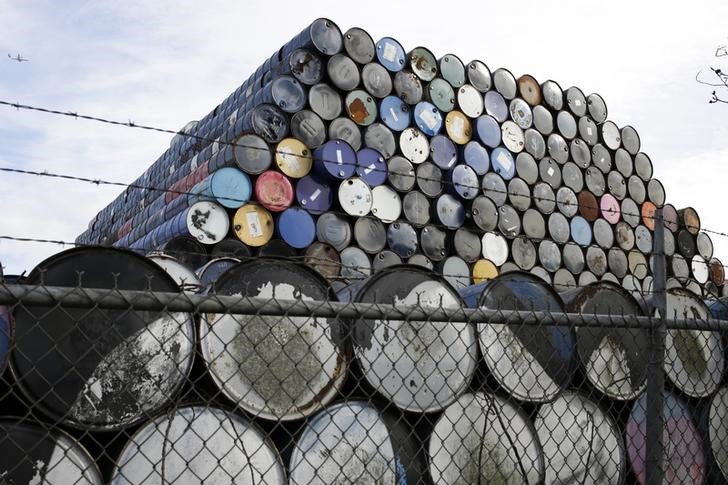Investing.com - Oil prices edged higher on Wednesday, as investors looked ahead to fresh weekly data on U.S. commercial crude inventories to gauge the strength of demand in the world’s largest oil consumer and how fast output levels will continue to rise.
The U.S. Energy Information Administration will release its official weekly oil supplies report for the week ended June 15 at 10:30AM ET (1430GMT), amid forecasts for an oil-stock drop of 2.1 million barrels.
Analysts also forecast a gain of 188,000 barrels for gasoline stockpiles, while distillate inventories are expected to fall by 164,000 barrels.
The data will also offer fresh indications on how fast domestic output levels continue to rise. U.S. crude production - driven by shale extraction - is currently at an all-time high of 10.9 million barrels per day (bpd).
After markets closed Tuesday, the American Petroleum Institute said that U.S. oil inventories fell by 3.0 million barrels last week.
The API data also showed a rise of nearly 2.1 million barrels in gasoline stockpiles, while inventories of distillates climbed by 750,000 barrels.
There are often sharp divergences between the API estimates and the official figures from EIA.
U.S. benchmark oil, August West Texas Intermediate crude was up 51 cents, or roughly 0.8%, at $65.41 a barrel on the New York Mercantile Exchange by 4:15AM ET (0815GMT).
Elsewhere, August Brent crude, the global benchmark, tacked on 51 cents, or around 0.7%, to $75.59 a barrel on the ICE Futures Europe exchange.
Meanwhile, oil traders continued to weigh potential outcomes for a meeting of major oil producers later this week.
Oil ministers from OPEC, Russia and other major producing countries will meet in Vienna on Thursday and Friday to review their current production agreement that has held back 1.8 million bpd from the market for the past 18 months.
Russia has pushed for returning 1.0 million bpd back into the market relatively quickly. However, Saudi Arabia would like to try a lower amount to prevent the price from dropping too much, experts said.
However, not all OPEC members agree. Iran, Venezuela and Iraq have all said the current production agreement should stay in place.
